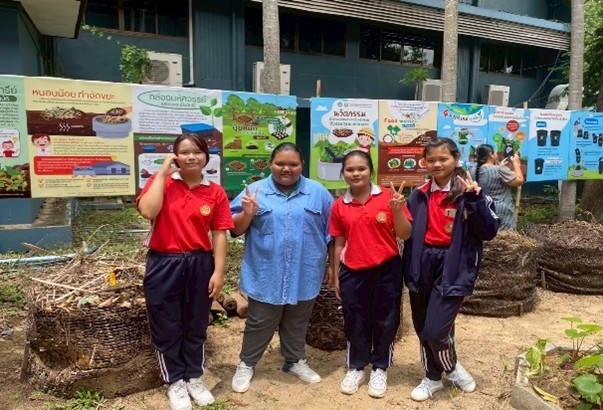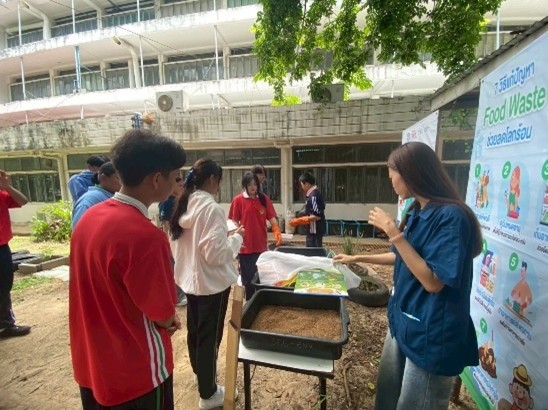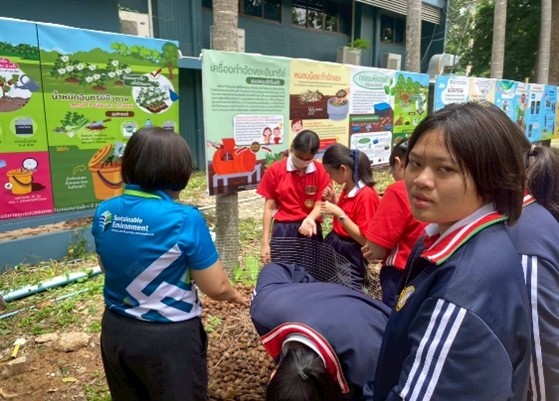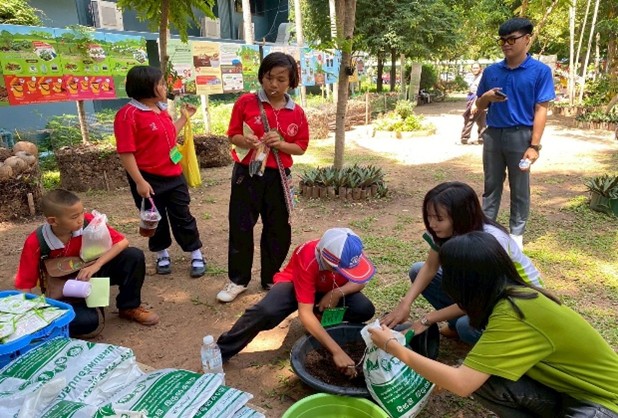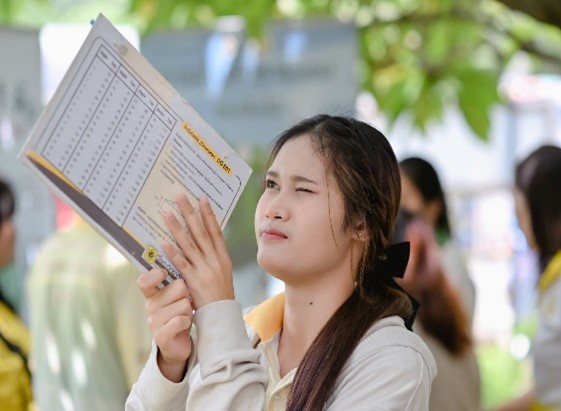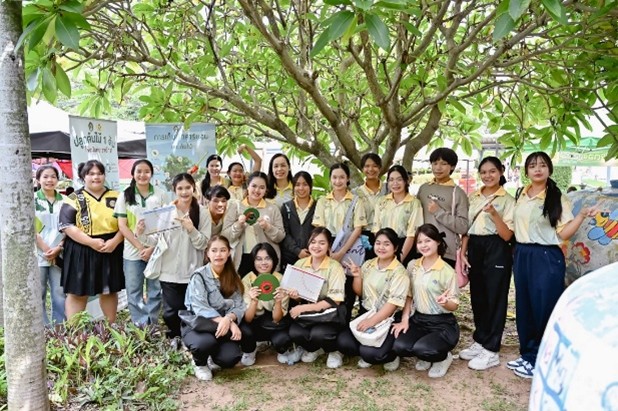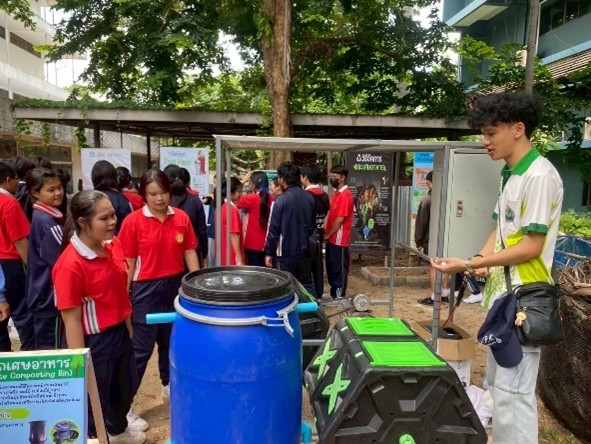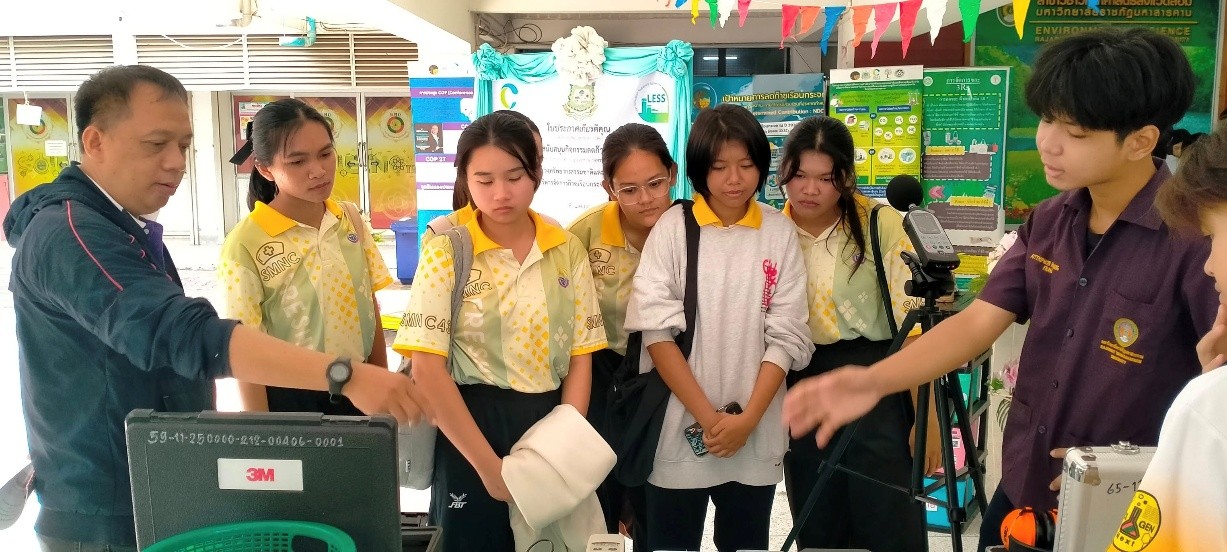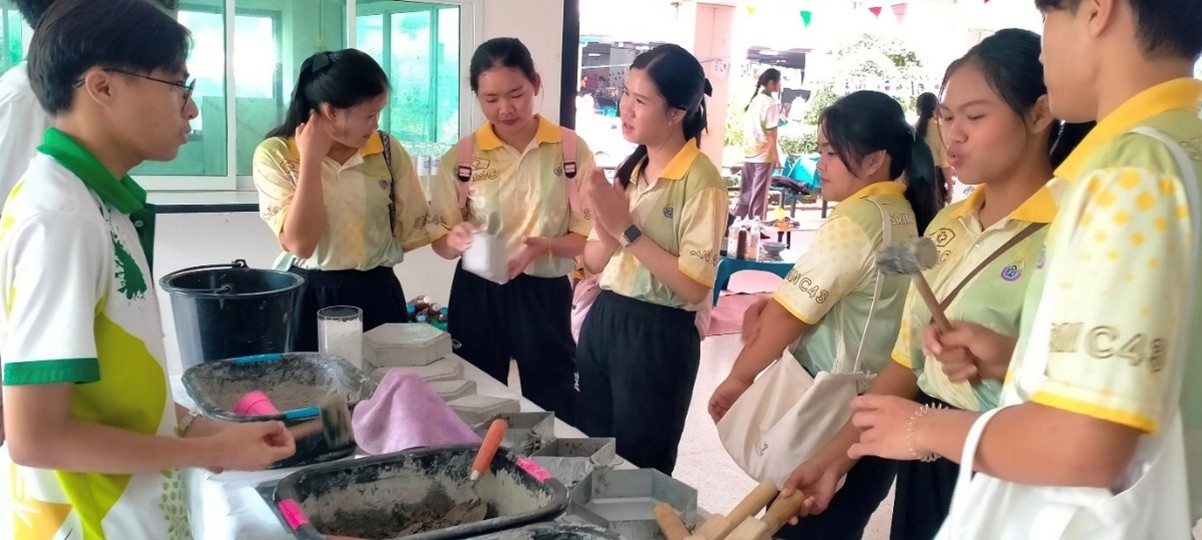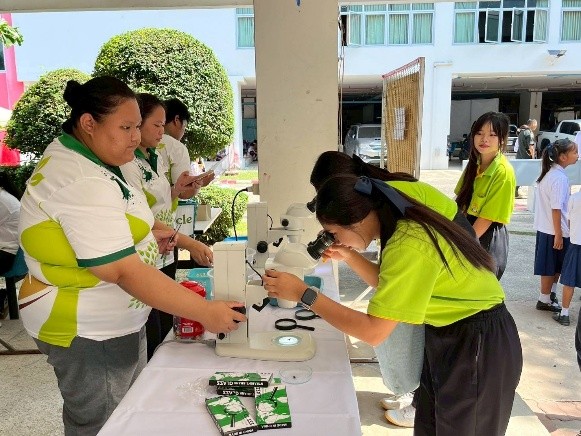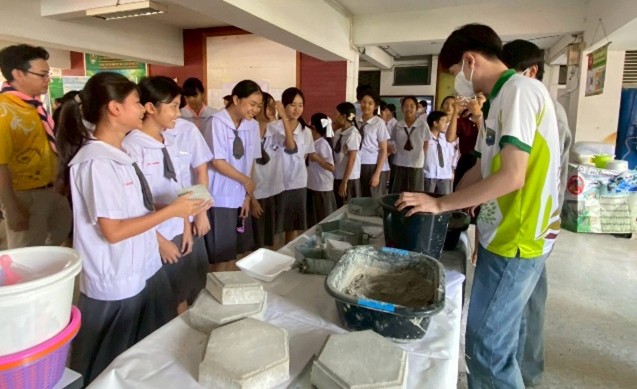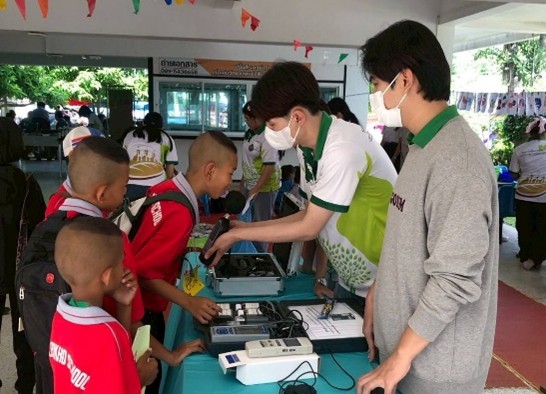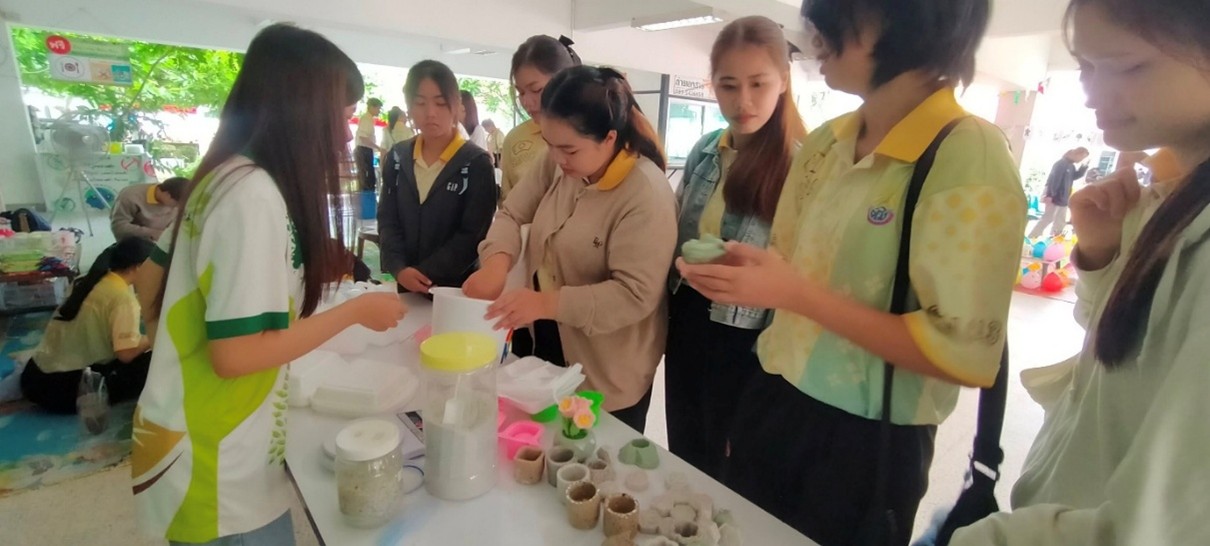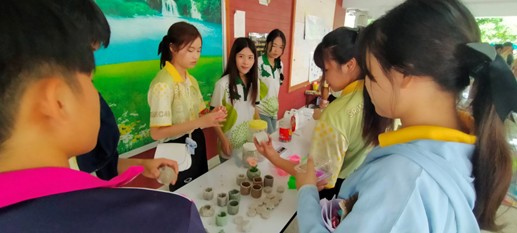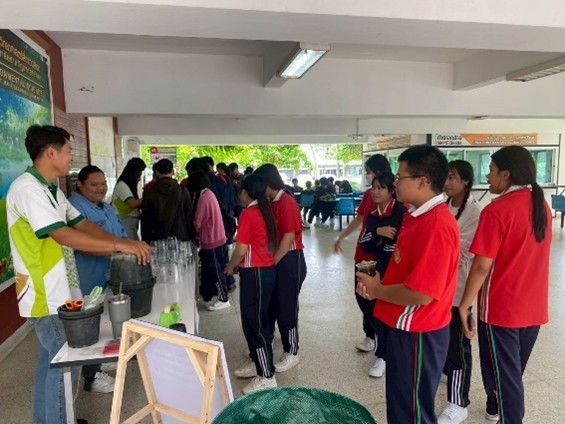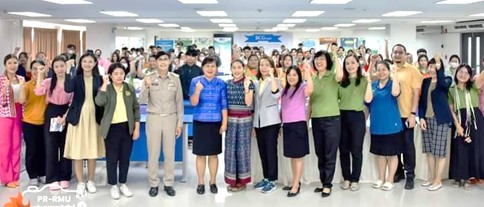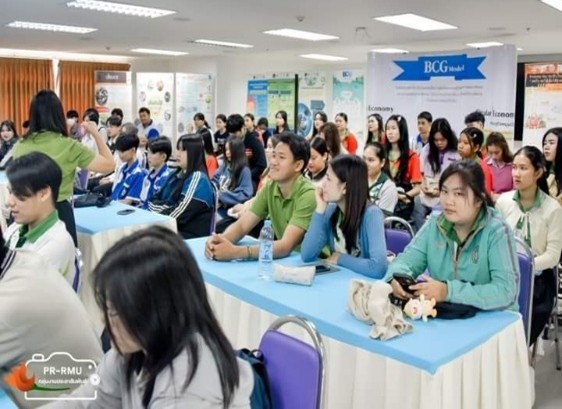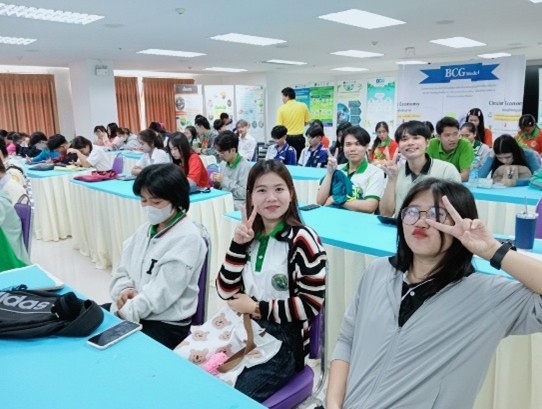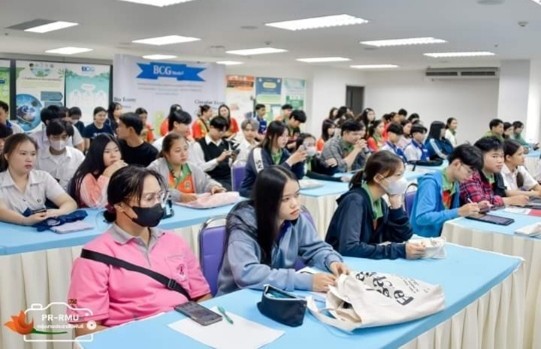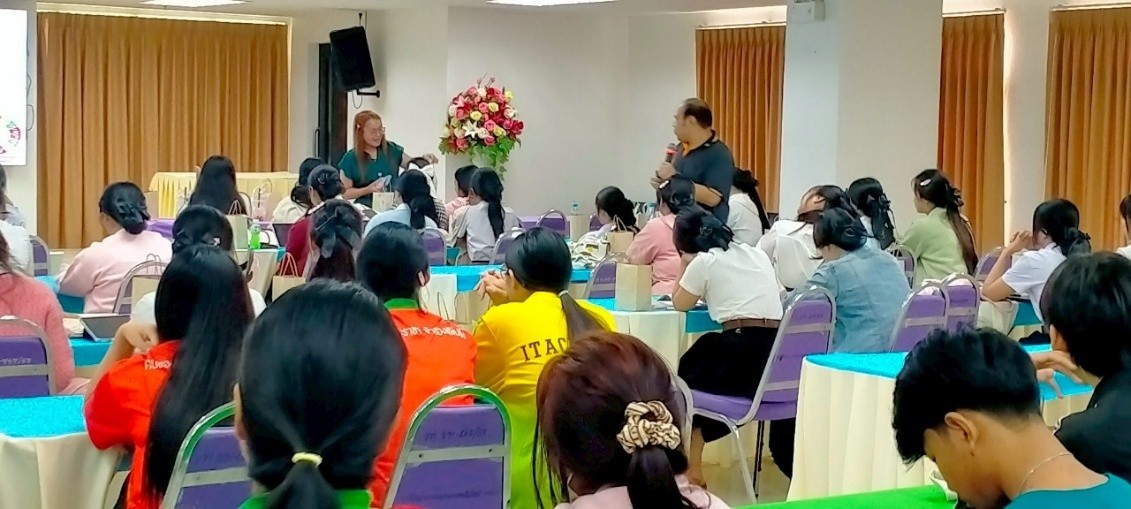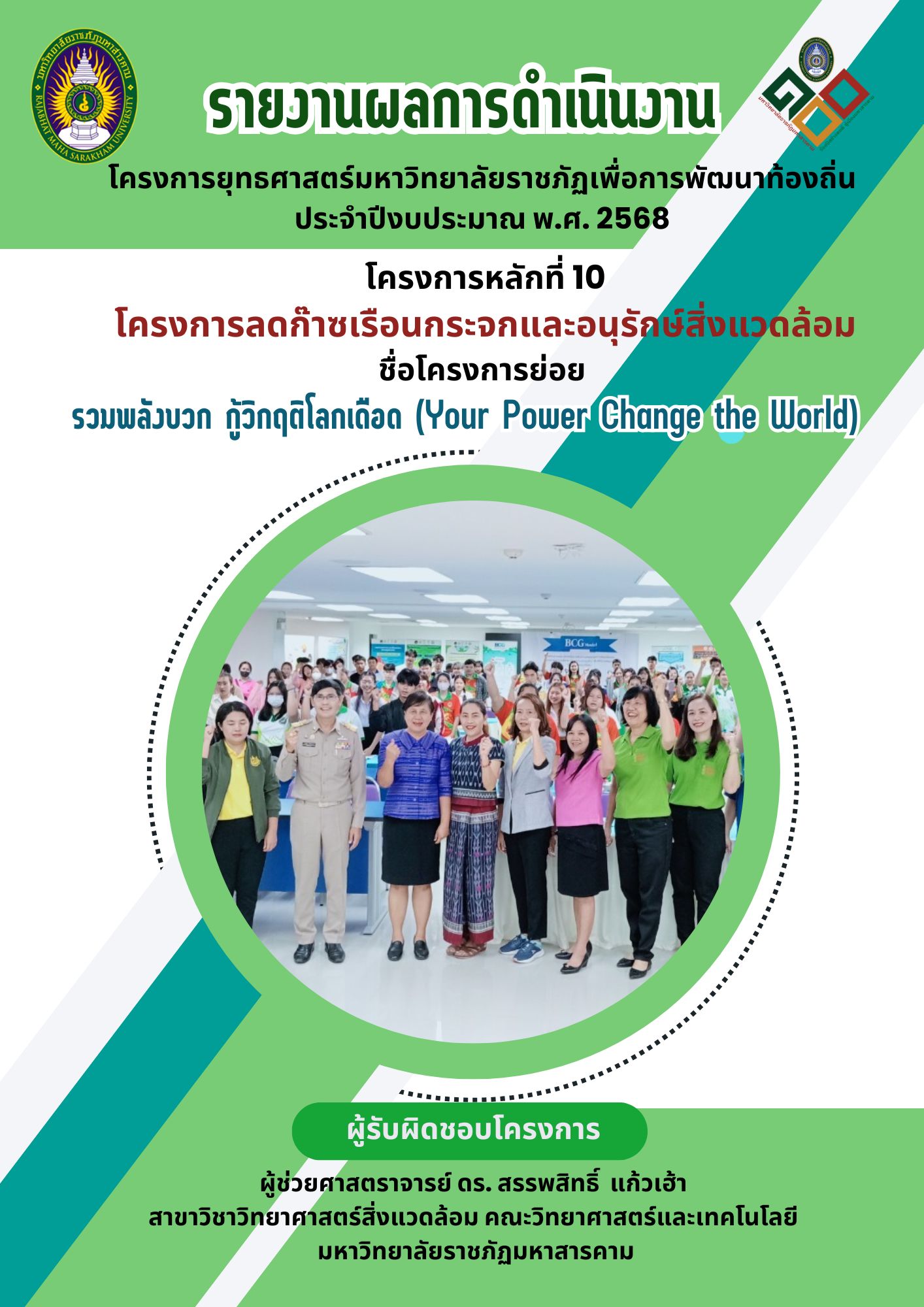
Positive Power to Cool the Boiling World: "Your Power Change the Word"
ผู้รับผิดชอบ ให้ข้อมูล : ผศ.ดร.สรรพสิทธิ์ แก้วเฮ้า
SDG ที่เกี่ยวข้อง
เป้าหมายย่อยความสอดคล้องกับยุทธศาสตร์มหาวิทยาลัย : พัฒนาระบบบริหารจัดการบนพื้นฐานธรรมาภิบาลและจริยธรรม
แหล่งงบประมาณ : งบประมาณแผ่นดิน
กลุ่มเป้าหมาย : ชุมชน
Project Implementation Area : คณะวิทยาศาสตร์และเทคโนโลยี ตำบล Talat อำเภอ Mueang Maha Sarakham จังหวัด Maha Sarakham 44000
Project Duration: November 8, 2568 – December 8, 2568
Objectives :
1. To enhance accurate knowledge and understanding of the “boiling world” phenomenon among educators, students, and youth both within and outside Rajabhat Maha Sarakham University.
2. To promote environmental awareness, foster a sense of responsibility, and encourage active participation among project participants in reducing greenhouse gas emissions, mitigating global warming, and adapting to climate change.
3. To develop youth leaders capable of applying and extending knowledge and approaches to greenhouse gas reduction and climate adaptation in their respective schools and educational institutions.
Activities :
The project was carried out through three main activities:
- Activity 1: Learning through Exhibition and Interactive Stations under the theme “United for Action: Facing the Crisis of the Boiling World” This activity aimed to disseminate scientific knowledge and raise awareness about global warming and climate change among staff, students, youth, and interested participants through exhibitions and learning stations.
- Activity 2: Workshop “Green Hero: Awakening and Nurturing Youth Leaders for a Greener World” The workshop inspired youth and educators to understand the mechanisms behind global warming and recognize their potential as “Heroes” who live sustainably and adaptively. Specially, Young participants were encouraged to apply these ideas in creative environmental initiatives as leaders within their schools, contributing to a low-carbon and climate-resilient society.
- Activity 3: Environmental Science Showcase — a short video exhibition on the topic “GEN Z’s Cool Ideas: Saving the World through Environmental Science” The activitiy was open to lower and upper secondary school students to showcase their work, encouraging creative thinking and application of scientific solutions to environmental problems.
Number of project participants: 320 people
Project Budget: 120,000 Baht
Results :
1. Participants demonstrated environmental awareness and applied the acquired knowledge and methods to their lifestyles, organizations, and communities to reduce greenhouse gas emissions and adapt to climate change.
(Indicator: Percentage of participating communities—schools or local groups—that applied project knowledge in daily life or organizational practices; Result: 50%)
2. Rajabhat Maha Sarakham University strengthened its capacity for management and interdisciplinary integration in activities promoting greenhouse gas reduction and climate change adaptation toward a low-carbon society, with increased local impact.
(Indicator: Number of community-based initiatives related to greenhouse gas reduction and climate adaptation; Result: 3 activities)
Results society :
1. The project strengthened awareness, environmental responsibility, and participation among participants in mitigating greenhouse gas emissions, addressing global warming, and adapting to climate change.
2. It enhanced the university’s image as an environmentally responsible institution and promoted environmentally friendly practices alongside educational development and community outreach.
Participation :
1. Personnel: Played key roles in organizing, coordinating, and supervising all three activities, assigning responsibilities to student assistants under faculty guidance.
2. Students: Actively participated in preparing venues, materials, equipment, food, and educational media (including games and content). They also served as facilitators and assistant trainers during workshops and learning stations.
Project continuity :
Inspireboth university students and younger pupils to value environmental issues. It is recommended that environmental topics and activities be incorporated across all courses and faculties.
Problems obstacles :
Due to the large number of participants, individualized engagement in each activity was limited, which occasionally reduced participant attention.
Improvement :
Increase the number of student assistants and created smaller working groups to ensure more effective interaction, explanation, and practice opportunities.
Suggestions :
1. In SDG reporting, the project’s diverse target groups (students, teachers, and pupils) could not be entered separately and were collectively categorized as “community,” which may not accurately reflect participation data.
2. Academic staff are encouraged to integrate environmental and climate change content into teaching and learning more extensively, particularly emphasizing global warming reduction.
